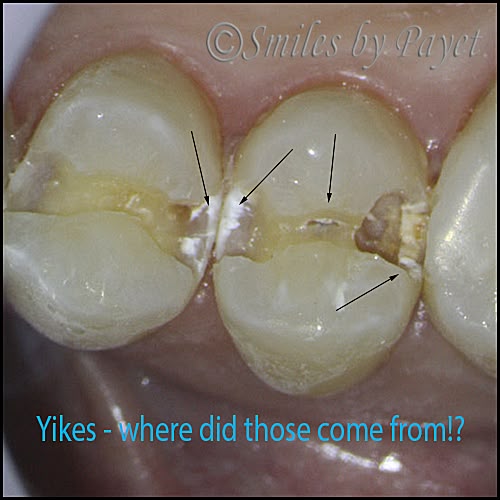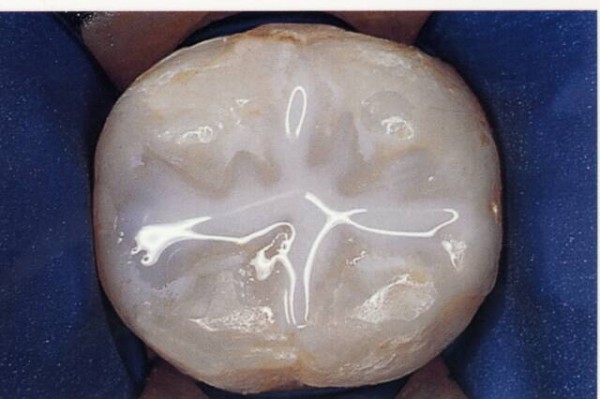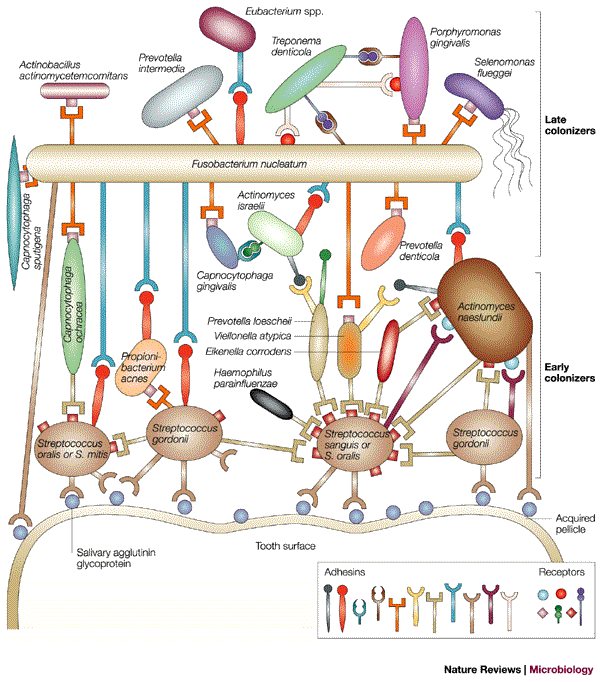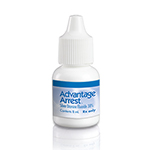I’ve previously discussed why you can’t cure cavities, but recent research sounds promising, so it’s a good time to review. In addition, there were some good points raised in the comments of the previous article that deserve more attention. Be warned: lots of bullet lists ahead as I break it down. 😀
Recap: Why We Currently Can’t Grow Dentin or Enamel

Let’s briefly summarise the difficulties that must be overcome in order to cure cavities, whether naturally or artificially:
- Once the cells that form dentin (odontoblasts) and enamel (ameloblasts) finish forming teeth, they die. Some odontoblasts remain in the tooth pulp, but they are stuck inside and can’t get out.
- We currently have no way to grow and transfer dentin- or enamel-forming cells into a tooth with a cavity and survive, much less grow new tooth structure.
- The dentin-forming cells in the pulp can’t grow outwards, just inwards, which shrinks the pulp chamber. This is a normal response to stress from cavities, bruxism, trauma, and aging.
- If you already have a cavity, we still have to get rid of the bacteria, which usually means drilling out the infected tooth structure.
- If we don’t want to drill, but just put a miracle gel on the tooth, it has to do 3 things:
- Stay in place for a long enough time to strengthen the enamel and soak way in for deep cavities
- It has to kill the bacteria inside the cavity
- It can’t negatively affect the rest of your mouth.
- If we have to drill out the cavity, then place the miracle gel, we still have big issues:
- How do we control how much dentin and enamel grow? IOW, it has to grow the right amount of dentin and/or enamel, and then stop. If it keeps going, that’s bad!
- How fast will the dentin and enamel grow? Let’s say it’s a big cavity, will the gel take an hour? A day? A week? A month?
- If it takes longer than the numbing lasts, how will we keep the sensitive inside part of the tooth from hurting?
- If it takes more than an hour or 2, how will we protect it from from saliva and food and bacteria?

Put simply: after a tooth is formed, the cells die off, leaving just the crystalline enamel and mostly crystalline dentin. When a cavity starts and forms a hole in the tooth, there aren’t any cells there to regrow the enamel, and the dentin-forming cells inside the tooth are very limited. Even if we figure out how to get the right cells and enzymes and minerals there, there are still more complications.
What Research Has Been Done On Growing Dentin & Enamel?
A few studies keep getting mentioned every time the subject comes up. To be clear, I am only including reputable research from legitimate sources, not absurd nonsense from something like the Weston Price Foundation. There are more studies than this, but they are just variations on these.
- Grow Your Own Teeth After 50 (Kings College, London, UK 2009): this research used stem cells to regrow entire teeth in mice, not to repair cavities.
- No More Fillings as Dentists Reveal New Tooth Decay Treatment (Kings College, London, UK 2014): this study used a low electrical current to force minerals into enamel weakened by decay but not completely broken down. Shows some promise and has limited testing in humans.
- Scientists have Figured Out How to Regenerate Teeth with Lasers (Harvard, 2014): this study used lasers to stimulate stem cells in a lab to grow dentin and enamel. It has not been tested in animals or humans yet.
- Researchers Grow Teeth From Gum Cells (Kings College, London, UK 2013): this study combined human gum cells with mice cells to grow whole human teeth. It was only done in lab dishes, only to grow whole replacement teeth, and not rebuild tooth structure lost to decay.
- Laser Therapy Prompts Regeneration in Teeth (the NIH and Harvard, 2014): This was a lab dish study showed that low-level laser stimulation can trigger growth of dentin from rat stem cells. Nothing in humans yet.
- How to Eliminate Pain Tied to Tooth Decay (U. of Southern California, 2015): 2 separate studies at USC by different groups. This is the most promising research, as it addresses the challenges of “how do we grow enamel if there aren’t enamel cells and there’s a big hole in a tooth.” Nevertheless, it is still only in a lab dish and has not been tested in animals or humans.
Looking at these 7 studies, a few things stand out:
- Most were done in lab dishes on tissue samples and not in animals or humans.
- The only one tested in humans was from Kings College, which involved forcing minerals into teeth weakened by cavities, not with actual holes or big cavities.
- Most involved stem cells to grow entire teeth. That is totally different from getting enamel to grow in a tooth in someone’s mouth while they’re using it every day.
Maybe We Can Cure Cavities in 10-20 Years
In other words, none of these are remotely close to being available to cure cavities now. Except for the one that uses an electric current to force minerals into weakened areas, none will even be tested in humans for another 5-10 years. Will any of them work in the mouth, since not all lab research works in real life? Even if it does, how expensive will the process be? Will it be available over the counter or require a trained dentist to perform? Will it require big lab equipment or be a little kit you can order online? We just don’t know.
What about Better Dental Sealants?

In the comments on that earlier article about why cavities can’t be cured or “healed”, questions were raised about why we can’t invent something that will coat the teeth and protect them from cavities. After all, we do have dental sealants to seal the deep grooves on the chewing surfaces of back teeth, so why not something to protect the whole tooth? This would be a game-changing breakthrough, but as with a way to heal cavities, there are some challenges. Here’s a partial list of the characteristics such a sealant would need:
- Non-toxic
- Invisible
- Able to withstand chewing forces of hundreds of PSI (pounds per square inch) thousands of times per day for many years
- Resistant to temperature extremes like the heat of coffee or the cold of ice cream
- Resistant to the acids and bases present in food and drink
- Not trigger an auto-immune response
- Resistant to the bacteria and by-products normally found in the mouth
- Easy to apply
- Only cover the teeth, not the gum tissue
- Microscopically thin to not interfere with teeth fitting together
As I told the person who asked, if anyone develops a material that does all of those things, that person will be rich beyond belief. If it is safe enough to sell over-the-counter, the profession of dentistry will die the day it comes out. Well, except for the fact that we’d still have to solve gum disease, too, which is a completely different set of bacteria.
Could We Make a Vaccine Against Cavities?
On the surface, it seems a vaccine against the bacteria involved in tooth decay and/or gum disease is much better option. In searching for research on dental vaccines, there hasn’t been a lot of it, and most has been in animals. Sadly, the consensus seems to be that the financial investment required to fully fund the research and develop a vaccine is too great. In an article published in January 2014, Dental Caries Vaccines: Prospects and Concerns, author Daniel J. Smith, PhD, summarizes well (added emphasis is mine):
“Despite the abundance of experimental evidence for the effectiveness of dental caries vaccines, none yet exist for human use. In part, there has been an unwillingness of commercial entities to underwrite the investment required for vaccine development. … Furthermore, pediatric vaccine approval boards are reluctant to add a vaccine for a normally non-life-threatening disease to the already long list of pediatric immunizations. …
There is some concern that mucosal-based vaccines may not induce host responses that are strong enough or are of sufficient duration to block colonization of cariogenic streptococci.”

There are other problems, of course. The dental biofilm is the microscopic layer of bacteria and connecting material that coats your teeth, and it’s a very complicated bacterial mattress, so-to-speak, with lots of bacteria, and more than one of them contribute to tooth decay. That means a vaccine has to cover more than 1 bacteria to really work well. Also, since biofilm is pretty hard to disrupt or penetrate, any vaccine has to overcome that barrier, too. So unfortunately….it’s very difficult, which means developing a vaccine will be very expensive, and we still don’t know how well it will work, even in animal models.
What’s That “Silver Diamine Fluoride” Stuff?

In early July 2016, the New York Times published an article titled A Cavity Fighting Liquid Lets Kids Avoid the Dentist’s Drill. In it, they discuss a product called silver diamine fluoride, or S.D.F., which has been used in Japan for decades and was approved for use in the USA by the FDA as a tooth desensitizer in 2015. Pediatric dentists are using it off-label as a way to stop early-stage cavities and reduce risk of more cavities in children. It’s only available from one company in the US, Elevate Oral Care, under the name Advantage Arrest. The ADA put out a press release the day after the NY Times article, too. So……….does it work?
From online professional discussion groups, it seems the consensus is: yes, it works. It can stop early-stage decay and seems to reduce the risk of more cavities forming. The downsides? It stains the areas of demineralized, weakened enamel black, and it’s not covered by dental insurance yet. On the flip side, it’s fairly cheap. The University of California at San Francisco (UCSF) published a paper on silver diamine fluoride that describes the product, how it works, its limitations, and current recommended protocols.
Here at Smiles by Payet Family Dentistry, we are still evaluating the evidence and talking with pediatric dentists especially, to see if we should start offering this product and will make a decision soon.
Conclusion: Nope, We Can’t Cure Cavities Yet
After all that, the best thing you can do is to prevent cavities. And we already know how you can do that: reduce the amount of sugar in your diet, eat more vegetables and fruits, choose whole grains, avoid acidic sodas/energy drinks and even too much juice, brush with a fluoride toothpaste and floss (yes, you still need to floss), and see a dentist for regular checkups.
When everything is said and done, Prevention is Still the Best Medicine!
To make an appointment for a Complimentary Consultation or Check-up:
Call us 704-364-7069 or contact us .
We’ll look forward to meeting you soon!
